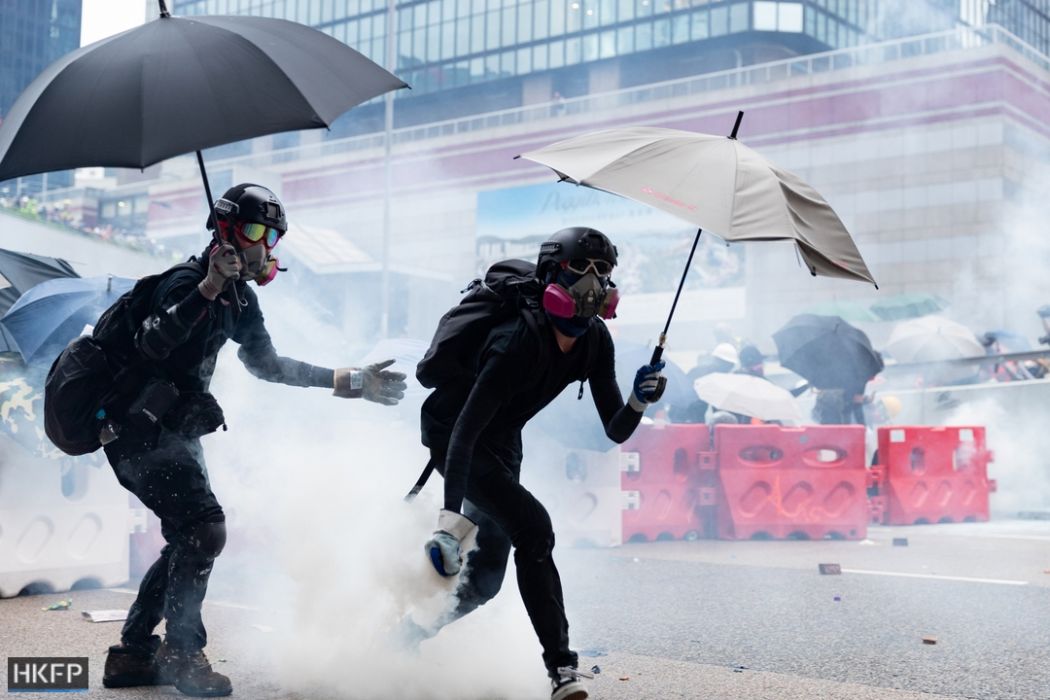Beijing is to discuss introducing national security legislation in Hong Kong following almost 12 months of protest and unrest. The move comes 17 years after such plans were scrapped following city-wide demonstrations.

State media announced on Thursday that the National People’s Congress (NPC) is to discuss drafting a decision on “Establishing and Improving the Legal System and Enforcement Mechanisms for Hong Kong to Safeguard National Security” at a plenary session on Friday.
Earlier, pro-Beijing paper Bastille Post cited sources as saying that the NPC is to authorise its Standing Committee to draft laws for Hong Kong covering secession, foreign interference, terrorism and subversion against the central government.
It is expected that the law will be added to Annex III of the Basic Law and promulgated by the Hong Kong government before September, bypassing the legislature, according to the source.
Article 18 of the Basic Law stipulates that no Chinese national laws shall be applied in Hong Kong save for those listed in Annex III of the mini-constitution. The NPCSC may add to the list after consulting its Basic Law Committee. The Annex III laws must then be effected through promulgation or by way of local legislation. Promulgation is done by the chief executive issuing a legal notice in the Government Gazette, allowing the national laws to be applied verbatim.
“Safeguarding national security serves the fundamental interests of all Chinese, our Hong Kong compatriots included,” said NPC spokesperson Zhang Yesui at a press conference, adding that such laws were “highly necessary” and the agenda details would be announced on Friday.
“The Hong Kong SAR is an inseparable part of the People’s Republic of China,” he said.
‘The end of Hong Kong’
Patrick Poon, an independent human rights researcher, told HKFP that it would be illegitimate for Beijing to pass such a “draconian” law: “It’s the most alarming development I have seen in the past 20 years… Where is the notion of ‘Two Systems’ here? It’s particularly appalling to see this when we have experienced jaw-dropping incidents threatening freedom of speech and the rule of law in Hong Kong.”

Maya Wang – China researcher at Human Rights Watch – echoed the concerns on Twitter: “The end of #HongKong is alarming not only for its people but also for the world. Today’s Hong Kong, tomorrow’s the world: #HongKong has been the safe about [sic] for dissent; it’s the light, the conscience, the voice that speaks truth to an increasingly powerful China.”
However, an editorial by the state-run China Daily said that the law will act as a deterrent: “When rolled out, those who challenge national security will necessarily be held accountable for their behavior, and with the backing of the State, the SAR will have sufficient means to make each word of the legislation count.”
Year of protest and unrest
Protests erupted last June over a now-axed extradition bill. They escalated into sometimes violent displays of dissent against police behaviour, amid calls for democracy and anger over Beijing’s encroachment. Last Friday, a police watchdog report largely cleared the force of wrongdoing with the authorities blaming protesters, “foreign interference,” and warning of “terrorist” activity among the movement following several arrests relating to bomb-making.
Article 23 of the Basic Law already stipulates that the Hong Kong government shall enact laws on its own to prohibit any act of treason, secession, sedition, subversion against the central government. However, its legislation failed in 2003 following mass protests.

The government has always had enough votes to pass the law, but it has never been raised since the 2003 debacle. Pro-democracy advocates fear it could have a negative effect on civil liberties. On Tuesday, Lam said it was “disappointing” that such laws had not been passed.
Earlier on Thursday, CPPCC Chairman Wang Yang said China will support Hong Kong in “improving” mechanisms related to its mini-constitution, while excluding the usual mention of the city’s high degree of autonomy.
Digital security firm NordVPN reported that it is “observing a huge spike in inquiries from Hong Kong” on Thursday night, following the news of Beijing’s security law plans.
More to follow.

